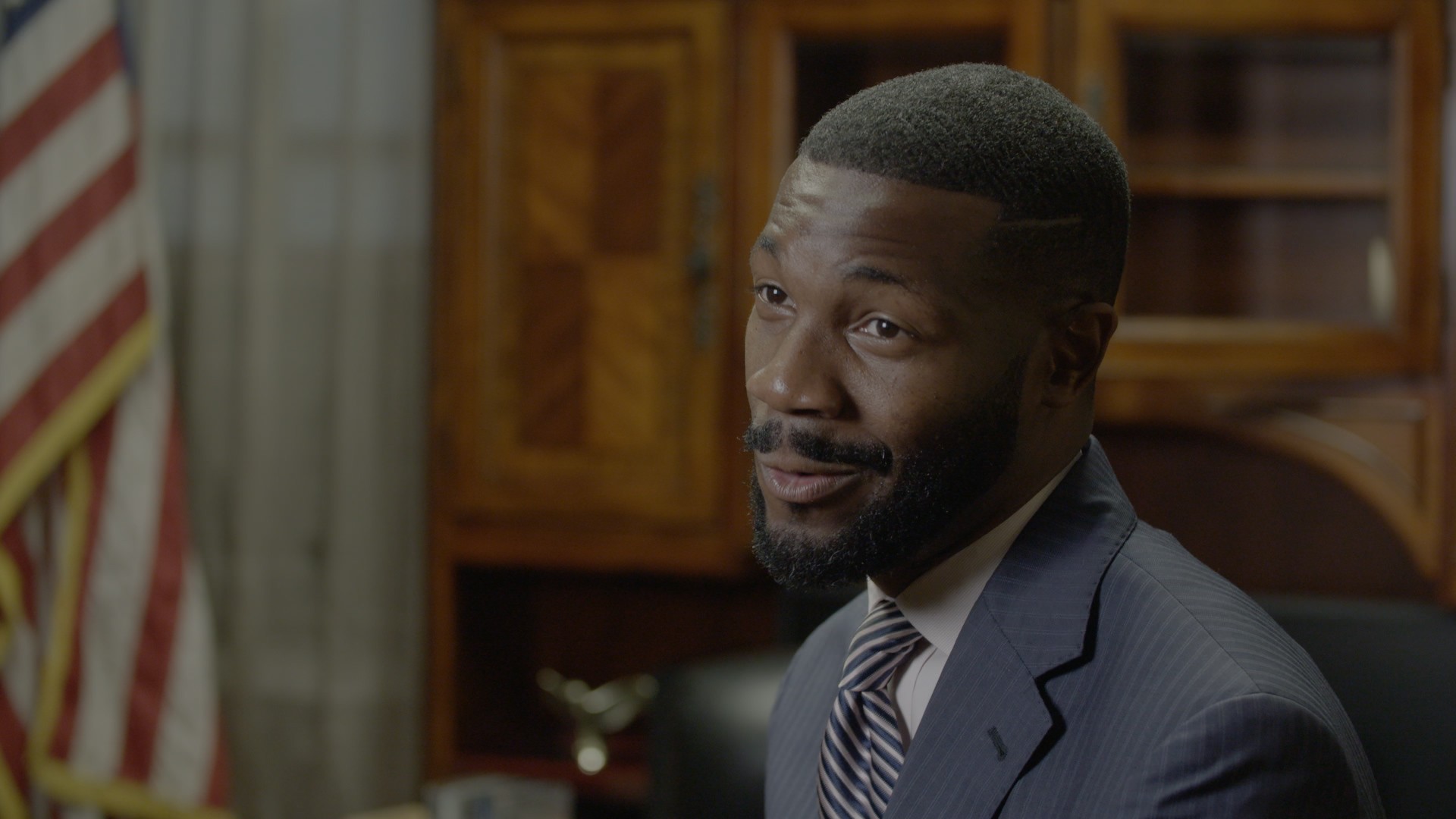Federal Reserve Chair Janet Yellen in front of a graphic showing the US national debt in 2015. JIM WATSON/AFP/Getty
Back in 2009, with the country dropping into a devastating recession, President Barack Obama signed a stimulus package intended to revive the shaky economy at a cost of around $831 billion over ten years. Only a few Republicans voted for it, and the GOP spent the next seven years decrying the Democrats’ profligate ways—a sentiment that became central to the new Tea Party movement and the rise of a new crop of hard-right GOP leaders.Now Republicans are on their way to finalizing a tax cut bill that—in the version passed by the Senate early Saturday morning—would add $1 trillion to the national debt over the next ten years, according to the nonpartisan Joint Commission on Taxation. That had many progressives crying hypocrisy, but it was far from surprising.“Lots of people don’t worry about debt when they want a policy,” Maya MacGuineas, president of the Committee for a Responsible Federal Budget, told me.On the face of it, digging the country deeper into debt feels like a dangerous idea—an irresponsible choice on a par with running up your personal credit card to take that Bahamas cruise. But the federal government’s debt is a lot different than your personal finance. Nearly all economists agree that it’s sometimes a good, responsible idea for the government to borrow money. The question is when and how to use borrowing as a tool to keep the economy running smoothly.“In my view the trouble isn’t that we’re adding to the debt, it’s what we’re adding it for,” said Dean Baker, co-director of the Center for Economic and Policy Research.Baker said the Republican bill’s tax cuts for the wealthy would only make the crucial economic problem of inequality worse. And features like taxing graduate students’ tuition waivers as income, which is likely to discourage young people from continuing their education, could hurt economic growth in the long term.But, he added, increasing the national debt isn’t particularly scary. It’s true, Baker said, that in recent years the US federal debt has grown bigger than the country's gross domestic product—something that hadn’t happened since the end of World War II. (The debt, the total amount the government owes to its creditors, is different from the deficit, which is the difference between how much the government spends and how much it raises in any given year.) But, because interest rates on government bonds remain quite low, the US is still paying a lot less each year in interest than it was in the 1990s.Not everyone is so relaxed. Len Burman of the Urban-Brookings Tax Policy Center told me it’s simply impossible to know when the national debt might get so high that investors don’t want to put their money into US bonds anymore. As the richest country in the history of the world, Burman said, the US does have an enormous capacity to keep taking on debt—but there’s no guarantee that won’t eventually change.“People want to hold reserve dollars—they view it as a safe place to park their money,” he said. “That’ll continue to be true until it isn’t.”

Burman said his biggest worry is that, down the road—particularly if economic growth in the country falters because of climate change or other disasters—bondholders might start thinking there’s a real chance the government could default on its obligations. That it could push the interest rates the government is paying up very quickly, making an already terrible situation much worse.So far, the bond market hasn’t been shaken by rising debt, but Burman said it may be unwise to trust lenders to give advance signals about when they’re going to freak out. Much like the crash in mortgage-backed securities in 2008, a widespread loss in confidence could hit all at once.But Stephanie Kelton, an economist at Stony Brook University in New York who advised Bernie Sanders during his presidential campaign, said the events of 2008 suggests a sudden loss of faith in US bonds is unlikely.“What did investors do when the US economy looked like the worst economy in the world?” she said. “Investors could not move into treasuries fast enough.”Ultimately, Baker and Kelton say, it’s the underlying, long-term strength of the US economy, not the size of the debt, that matters when it comes to confidence in federal bonds.Kelton argues that the debt matters only to the extent that it affects real people, and that putting a particular emphasis on keeping borrowing down misses the big picture. Rather than focusing on the Congressional Budget Office’s projections for the debt, she said, politicians should consider different criteria.“Have them sit down and ask them, ‘If we do this $1.5 trillion bill, how will it impact child poverty or the GINI coefficient [a measure of economic inequality]?’” she said. “Will it exacerbate that, or will it begin to reverse some of the dangerous trends? How will it affect inflation?”MacGuineas said one big concern about rising debt is not that it would lead to the kind of disaster Burman describes but that it could slow down economic growth. The idea is that people with money may choose government bonds over investments in private companies that employ people and produce stuff.“It’s what I call ‘muddling along,’” she said.Economists differ over how much effect bonds have on private investment. But MacGuineas believes it could be a particular problem if the country fell into recession again, something that’s sure to happen sooner or later.If and when a recession does come, though, the biggest danger of a large national debt could be political rather than economic. Economists generally agree that it’s smart to pump government money into the economy—either through spending or tax cuts—during downturns. But a high debt can provide political talking points about why it’s impossible to do that.“The risk is if we go into the next recession and debt is [high], policy makers might feel they can’t borrow more money to get us out of it, and that could turn it into a bad recession or a depression,” Burman said.Similarly, politicians can use the size of the debt to argue against all kinds of government programs that they don’t like anyway. Already, Republicans are suggesting that once the tax bill passes, they’ll move on to cutting programs like Medicaid, Medicare, and Social Security in the name of balancing the budget that they are working to make more unbalanced with their tax package.Burman noted that this follows a decades-long pattern in partisan politics—Republicans criticize borrowing for the social spending that Democrats like, while Democrats don’t put as much pressure on Republicans when they increase the deficit by cutting taxes.“Some Republican political advisers think this really works for the party,” he said. “They can come in and beat up on Democrats.”Baker said that exact dynamic kept the Obama administration’s economic stimulus package too small to really turn the economy around in the wake of the financial crisis.“Supposed we had spent a huge amount of money,” he said. “The economy would be much stronger today.”In fact, Kelton argues that the lesson Democrats should draw from the Republican tax bill isn’t to be more critical of Republican moves that drive up the debt. It’s to realize that the GOP doesn’t have any ground to stand on when it comes to criticizing deficit spending for things like free public colleges, roads and bridges, or early childhood educationDemocrats, she said, should keep that in mind next time they’re in power: “It’s a huge opening, if they were willing to take it."Follow Livia Gershon on Twitter.
Advertisement
Advertisement

Burman said his biggest worry is that, down the road—particularly if economic growth in the country falters because of climate change or other disasters—bondholders might start thinking there’s a real chance the government could default on its obligations. That it could push the interest rates the government is paying up very quickly, making an already terrible situation much worse.
Advertisement
Advertisement
Advertisement
